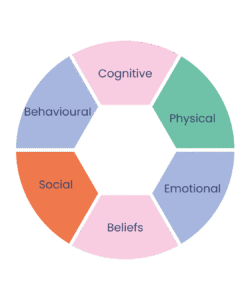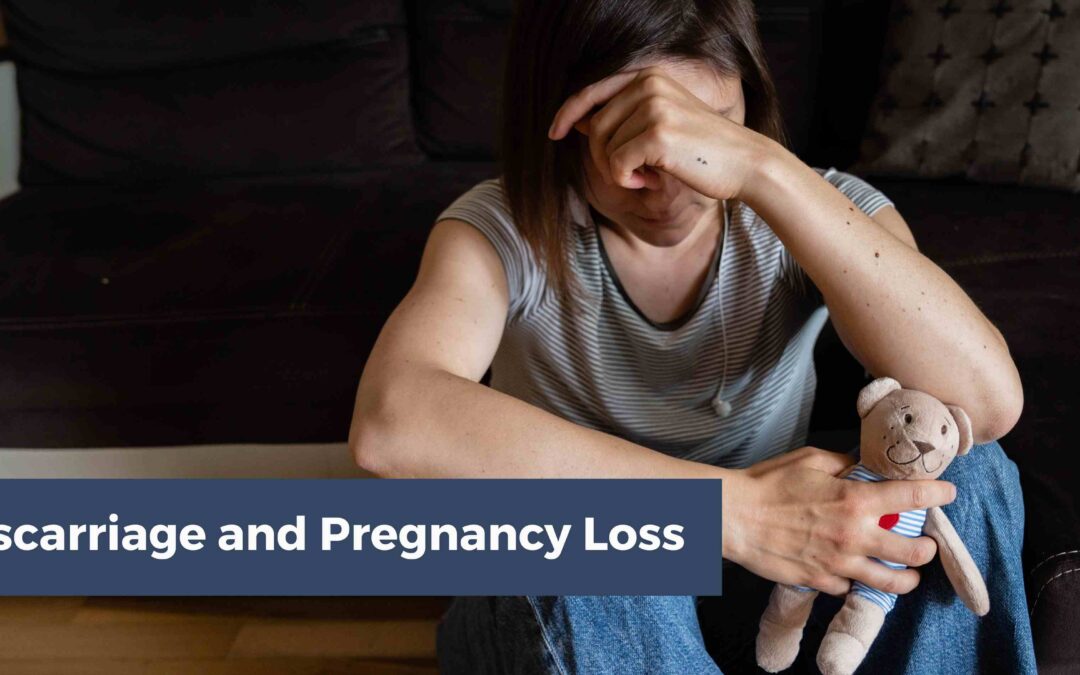At The Therapy Hub, we often support people through grief, but one type of grief that still doesn’t get talked about enough is pregnancy loss.
Whether it’s an early miscarriage, a loss later in pregnancy, or a stillbirth, the emotional toll can be enormous. Yet many people carry this pain quietly, unsure who to talk to or how to ask for help. This silence isn’t accidental. For many of us, miscarriage just wasn’t part of the conversation growing up or even something many friends talk about. Even in therapy training, it’s rarely included in grief education.
The impact of miscarriage and pregnancy loss
We’ve worked with individuals and couples who describe miscarriage as one of the most painful experiences they’ve faced. The loss itself can be devastating. But it’s often the response from others that makes it harder.
Well-meaning comments like At least you know you can get pregnant, You already have a child, or You can always try again are common. While often said with the best intentions, these phrases can feel minimising or dismissive. Comments like this are invalidating and misshe very real grief people are sitting with.
Pregnancy loss can affect every part of a person’s life, emotionally, physically, socially, cognitively, and relationally. There is a great a visual pie chart that helps map out the many areas grief can touch. It was a powerful reminder that loss doesn’t live in one part of us. It can spill into every area of life.

Here’s how:
Cognitive
Many people describe experiencing brain fog, forgetfulness, or difficulty concentrating after a miscarriage. This can be frustrating and impact confidence, especially at work or in social situations. It may not last forever, but it can feel debilitating while it’s happening.
Physical
Grief can show up in the body. You might feel tightness in the chest, nausea, headaches, disrupted sleep, changes in appetite, or fatigue. Stress can settle into the shoulders, neck, and stomach. Some people feel wired and restless. Others feel numb and exhausted.
Emotional
Sadness, despair, fear, hopelessness, guilt, shame, all of these emotions are common. People may feel angry at their body, scared it will happen again, or blame themselves even when they’ve done nothing wrong. Shame, in particular, can keep people silent and disconnected from support.
Beliefs and Identity
Pregnancy loss can shake a person’s beliefs about themselves, their body, their identity, and even their future. For some, there are spiritual or cultural beliefs that make the experience even more complex. You may start questioning your sense of self or what it means to be a parent.
Social & Relationships
Many people don’t tell others about their miscarriage. That choice can make sense; it’s deeply personal. But it can also be isolating. Returning to work, seeing friends who are pregnant, or hearing birth announcements can bring up mixed feelings. You can be happy for someone else and still be grieving your own loss. Unfortunately, people often don’t know what to say, and that silence can make it even harder.
Pregnancy loss can impact couples in different ways. One partner might try to be strong and stoic, while the other feels openly devastated. Misunderstandings can creep in. It might feel like you’re grieving alone, or like your partner doesn’t care. Having honest conversations and, where needed, getting professional support can help.
Behaviour
Grief can also change your daily habits. You might withdraw, lose interest in things you usually enjoy, or become more controlling to regain a sense of stability. Some people throw themselves into work, whilst others avoid responsibilities altogether. All of this is part of how we try to cope.
There Is No One Way to Grieve
Some people are deeply affected by miscarriage. Others are not. You might feel everything at once, or nothing at all for a while. There is no right way to grieve.
If you or someone you love has experienced a pregnancy loss, know that support is available. You don’t have to go through it alone.
At The Therapy Hub, we support individuals and couples navigating grief, pregnancy loss, and the complex emotions that come with it. If you need someone to talk to, we’re here.
A resource we often recommend is Pink Elephant Support. They offer helpful tools, peer support, and information for both individuals and professionals.
Grief is never one-size-fits-all. But you deserve care that meets you where you are.









Recent Comments